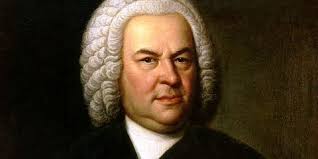Latest Comments

The Story Behind Bach’s Toccata and Fugue
Johann Sebastian Bach’s Toccata and Fugue in D minor, BWV 565 is one of the most iconic and widely recognized pieces of classical organ music.[…]

Johann Sebastian Bach – Biography and History
Johann Sebastian Bach, a towering figure in the history of classical music, was born on March 31, 1685, in Eisenach, Germany. He came from a[…]

Carl Philipp Emanuel Bach – Biography and Life
Carl Philipp Emanuel Bach, renowned as one of the most influential composers of the Classical era, was born on March 8, 1714, in Weimar, Germany.[…]

Fascinating facts about Bach
Johann Sebastian Bach, one of the most renowned and influential composers in the history of classical music, left an indelible mark on the world of[…]

The Masterpieces of Johann Sebastian Bach: 10 Timeless Songs
Johann Sebastian Bach, a renowned German composer of the Baroque period, left an indelible mark on the world of classical music. With his exceptional talent[…]

Johann Sebastian Bach: A Musical Genius Whose Melodies Still Resonate Today
Johann Sebastian Bach, often referred to as the maestro of Baroque music, left an indelible mark on the world of classical composition. Born on March[…]

How Johann Sebastian Bach Became Blind
However, at the age of 64, his vision started to deteriorate. He could no longer play the organ, compose music or direct choirs and orchestras.[…]
© 2025 Top Classical Music. Created with ❤ using WordPress and Kubio